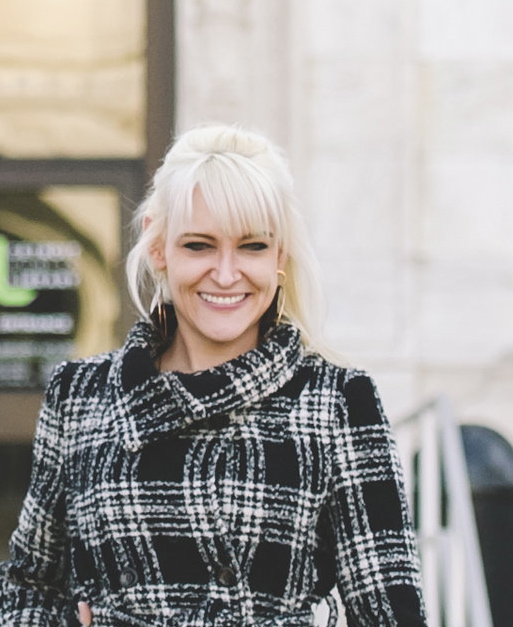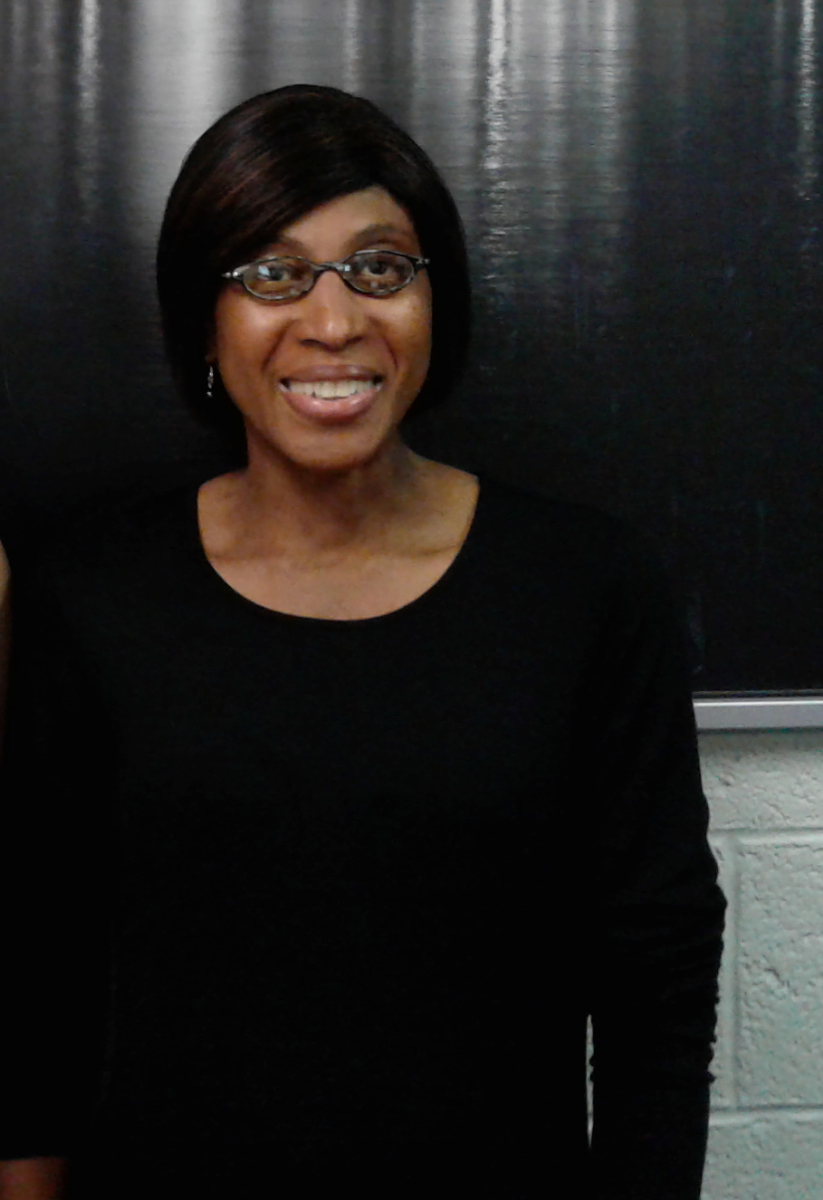Ph.D. students participate in Next Generation Humanities PhD summer program
Collen Grant is a Ph.D. candidate in Spanish and Kelly Kourouma is pursuing her Ph.D. in French. Both Grant and Kourouma participated in a new summer program for Ph.D. candidates, part of the Next Generation Humanities PhD initiative at Wayne State focused on career diversity.
In the of summer 2017, Grant was part of the pilot group of summer interns, and worked at the Wayne State University Press. In the summer of 2018, Kourouma was a humanities clinician at the second summer Humanities Clinic. We recently asked them to tell us about their experiences in the program.
Would you introduce yourself to our readers?
 Colleen Grant: My name is Colleen Grant and I am a Ph.D. candidate in Spanish Literature.
Colleen Grant: My name is Colleen Grant and I am a Ph.D. candidate in Spanish Literature.
Kelly Kourouma: My name is Kelly Kourouma and I am a third year Ph.D. candidate in Modern Languages (French).
What was your assignment in the summer internship program?
CG: I was an intern at the WSU Press during the summer semester of 2017 when I participated in the NEH Next Generation Humanities Internship program. During my time at the Press, I worked primarily with the marketing department.
KK: This summer, I had an opportunity to work as an intern with the Next Gen Humanities Ph.D. program. I completed my internship with two different community partners: the International Institute of Metropolitan Detroit (IIMD), and the Maurice & Jane Sugar Law Center for Economic and Social Justice.
What kinds of projects did you complete? What kinds of skills did you need to have to complete them?
CG: Some of the major tasks I was assigned include writing catalog copy for the Spring/Summer 2018 books, adding new books and book reviews to Biblio, the online database for the Press, and using InDesign to create banners for specific series pages for the WSU Press website.
KK: The International Institute is a long-standing Detroit-based non-profit agency owned and operated by immigrants and native Detroit residents. IIMD is dedicated to working with low-income foreign-born and native populations in an effort to establish a more inclusive, equitable and just society. My work was to assist with their legal immigration department. I had an opportunity to learn from a team of highly qualified and experienced immigration attorneys and Department of Justice Accredited Representatives. I also had a chance to help with general office support, client intake and research, database management including grant reporting, research and /or writing, marketing and outreach.
As an intern, I was given quite a significant amount of creative space. Of course, I had to follow guidelines but my managers were very interested in what I wanted to gain from the internship and how they could best help me gain that knowledge. Skills such as prioritizing projects, multitasking, and paying attention to detail throughout a long project were all top priorities. It was actually great to be part of a large organization, and it demonstrated to me that professional work and community service can cooperate to make strong impacts on their communities.
 After the IIMD, I went to the Maurice & Jane Sugar Law Center for Economic and Social Justice, a national nonprofit organization based in Detroit. This institution uses legal and other public advocacy to advance the rights of working people and their communities. Furthermore, the Center helps disenfranchised communities get heard by working with the regional community-labor coalition and by Doing Development Differently in Metro Detroit (D4). The center also helps unions support self-organizing by reaching workers in abusive working conditions. My work was related to Temporary Workers, assisting with researching and developing an outreach program to temporary workers in Toledo, Ohio; Fort Wayne, Indiana; and Lansing, Michigan.
After the IIMD, I went to the Maurice & Jane Sugar Law Center for Economic and Social Justice, a national nonprofit organization based in Detroit. This institution uses legal and other public advocacy to advance the rights of working people and their communities. Furthermore, the Center helps disenfranchised communities get heard by working with the regional community-labor coalition and by Doing Development Differently in Metro Detroit (D4). The center also helps unions support self-organizing by reaching workers in abusive working conditions. My work was related to Temporary Workers, assisting with researching and developing an outreach program to temporary workers in Toledo, Ohio; Fort Wayne, Indiana; and Lansing, Michigan.
This project required research regarding advocates, community groups, government officials, service providers, and others in these locations who may be interested in collaborating on know-your-rights trainings, ordinance proposals, or other initiatives in support of temporary workers. I was able to identify nonprofit organizations that are concerned with workers' rights and/or economic issues such as poverty issues, employment issues and income security that service the residents of these three cities.
Would you recommend the experience to other doctoral students? Did it change the way you think about your graduate education?
CG: Overall, working at the Press was an amazing learning experience and I would absolutely recommend the program to other doctoral students. It provided me with an invaluable opportunity that I had previously thought was unavailable at this point in my doctoral career.
KK: This internship was a great opportunity to learn something new outside of my field of study. It also gave me a chance to explore other areas of interest and jobs that might be a good fit for me in the future. There are so many experiences I have gained that just cannot be achieved in a traditional classroom setting. Plus, the experience looks fantastic on a resume! Moreover, this internship taught me how to work with a team, better organizational skills and even allowed me to acquire leadership qualities from working directly with professionals outside of my field of study. I think every doctoral student should have the opportunity of an internship because unlike a traditional classroom experience, where you are given the tools to understand your major, an internship is a hands-on experience. In fact, it helps you get a feel for your career choice so that you can decide if this is the right job for you.